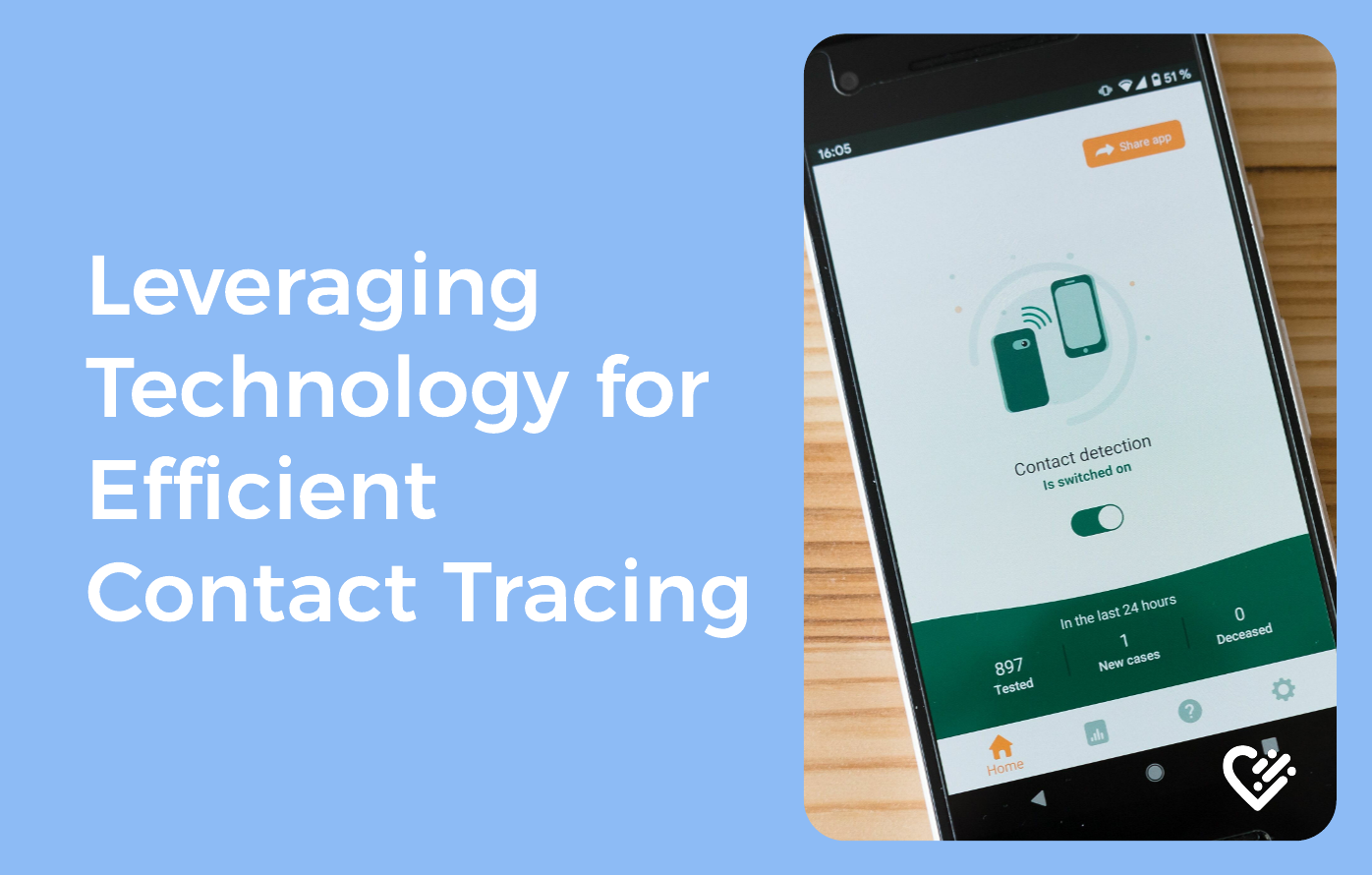Contact tracing plays a crucial role in preventing the spread of infectious diseases, and with the advent of technology, its efficiency has been significantly enhanced. In the healthcare industry, leveraging technology for efficient contact tracing has become a game-changer in identifying and containing potential outbreaks. This article explores the various technological advancements that have revolutionized contact tracing, highlighting their benefits to the healthcare sector.
Efficient Contact Tracing: The Need of the Hour
Efficient contact tracing is more critical than ever, especially in the healthcare industry. Rapid identification and containment of infectious diseases such as COVID-19 can help save lives and prevent healthcare systems from becoming overwhelmed. Traditional manual contact tracing methods are time-consuming, prone to errors, and often catch up with the transmission speed.
The Role of Technology in Contact Tracing
- Mobile Applications: Mobile applications have emerged as powerful tools for contact tracing. With the help of GPS, Bluetooth, and anonymized data, these applications can track an individual’s movement, record encounters with other users, and notify them if they have been close to someone who tested positive. Such apps enable quick and widespread contact tracing, ensuring that potential carriers of infectious diseases can be alerted promptly.
- Data Analytics: Data analytics has revolutionized contact tracing by allowing healthcare professionals to analyze vast amounts of data quickly. Advanced algorithms can identify patterns, hotspots, and potential transmission routes. This information enables authorities to make data-driven decisions, allocate resources efficiently, and implement targeted interventions, ultimately curbing the spread of diseases.
- Internet of Things (IoT): IoT devices, such as wearable trackers and smart thermometers, can provide valuable data for contact tracing efforts. These devices monitor individuals’ vital signs, symptoms, and movements, allowing healthcare professionals to accurately identify potential cases and track their contacts. Leveraging IoT technology enhances the accuracy and efficiency of contact tracing while minimizing human error.
- Artificial Intelligence (AI): AI-powered algorithms can rapidly analyze massive amounts of data, identifying patterns and making predictions. In contact tracing, AI algorithms can help identify high-risk individuals, predict outbreaks, and optimize resource allocation. AI can also assist in contact tracing data management, automating the process, and reducing the burden on healthcare personnel.
Benefits of Efficient Contact Tracing Technology
- Early Detection and Prevention: Healthcare professionals can detect potential cases early by leveraging technology for contact tracing, allowing for timely isolation and treatment. This proactive approach helps prevent further transmission of diseases, saving lives and reducing the burden on healthcare systems.
- Rapid Response and Containment: Efficient contact tracing technology enables authorities to respond swiftly to potential outbreaks. By quickly identifying and notifying individuals in close contact with confirmed cases, appropriate measures can be taken to contain the spread, such as testing, quarantine, and targeted interventions.
- Resource Optimization: Technology-driven contact tracing optimizes resource allocation by providing real-time data and insights. This helps healthcare organizations efficiently distribute testing kits, medical supplies, and personnel to areas with the highest risk, ensuring that resources are utilized effectively.
- Public Awareness and Education: Contact tracing technology facilitates communication between healthcare authorities and the public. Mobile applications and other digital platforms can deliver real-time updates, guidelines, and educational resources to individuals, empowering them to take necessary precautions and actively participate in the fight against infectious diseases.
Leveraging technology for efficient contact tracing has transformed how the healthcare industry responds to infectious diseases. By embracing these technologies, healthcare professionals can detect and contain outbreaks, optimize resources, and safeguard public health. Efficient contact tracing is essential in our collective effort to combat infectious diseases and protect communities worldwide.
